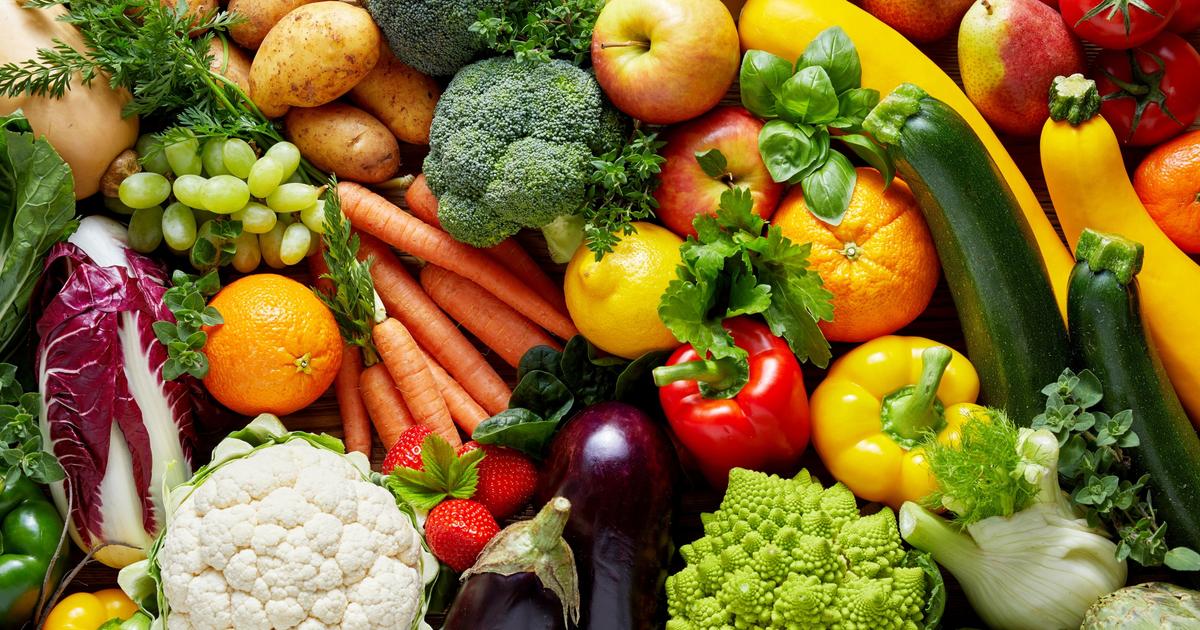Already present in water or soil,
“eternal pollutants”
(PFAS) are also increasingly found on plates: according to several NGOs, the presence of pesticides containing these chemical substances has exploded between 2011 and 2021 in fruits. and vegetables consumed in Europe, particularly in summer fruits.
According to an analysis of official data from national monitoring programs for pesticide residues in food from Member States carried out on 278,516 samples of fruits and vegetables, the volume of fruits contaminated by PFAS residues increased by 220% between 2011 and 2021. During this period, on average 11.2% of the fruits examined contained residues of at least one PFAS.
And in 2021,
“on average a quarter of fruit grown nationally”
in the EU were affected by PFAS contamination.
The most affected are summer fruits, such as strawberries (37% contaminated in 2021), peaches (35%) or apricots (31%), indicates a report published Tuesday by several associations including Générations Futures and Pesticide Action Network (PAN) Europe.
These two NGOs had already published a first study on the subject in November 2023, denouncing the sometimes unsuspected presence of these pollutants in pesticides and showing that sales of chemical inputs containing PFAS had tripled since 2008. For vegetables, proportionally less affected by this contamination (traces in 5.5% of samples on average), the increase is 247% between 2011 and 2021, endives (42%) and cucumbers (30%) being the most contaminated in 2021.
Read alsoFrance suspends the entry of fruits and vegetables treated with an insecticide banned in Europe
France not spared
PFAS, which owe their nickname to the fact that they are very poorly degradable once in the environment and, for some, to their harmful effects on health, are usually mentioned for their use in industry or in health products. consumption such as non-stick pan coatings.
But agriculture also uses these substances.
According to the report, the most common agricultural use PFASs between 2011 and 2021 were the fungicide fluopyram, the insecticide flonicamid, and the fungicide trifloxystrobin.
“This source of contamination must not be neglected (...) because food is one of the most important and continuous routes of exposure”
to the harmful effects of these substances, François Veillerette, spokesperson, warned on Tuesday. of Future Generations during a videoconference.
In the 20 countries studied, fruits and vegetables grown in the Netherlands (27%), Belgium (27%), Austria (25%), Spain (22%), Portugal (21%), Greece (18%) and France (17%) are those which contain the most traces of PFAS.
In France alone, 12.2% of fruits and 8% of vegetables studied contained traces of at least one PFAS over the period from 2011 to 2021.
“As a trend, the average proportion of fruit samples containing PFAS pesticide residues increased by 617% over a period of 10 years
,” denounce the NGOs.
And on vegetables, growth is 262%.
“This shows that France is no exception to the rule
,” notes François Veillerette as the country has just paused its Ecophyto plan aimed at limiting the use of pesticides and changed its measurement indicator.
Also read: What is thiacloprid, this pesticide that the government wants to ban from French imports?
“Chronic risk”
The fruits most contaminated with PFAS in France in 2021 are table grapes (48% with at least one residue), apricots (39%) and melons (37%).
On the vegetable side, chicory (52%), eggplant (29%) and peppers (23%) are at the top of the black list.
The results of the report show that
“the probability of finding PFAS on our plate is increasingly important”
, which
“creates a chronic risk for the environment and health, because these substances accumulate in our body”
. underlines François Veillerette.
Last year, the European Union took a first step towards restricting the use of PFAS.
But pesticides classified PFAS are excluded from the scope of this restriction, because phytosanitary products are regulated by their own text.
According to François Veillerette,
“it is stupidity”
not to include PFAS resulting from pesticides in European legislation, because
“it is urgent to ban (them) (...) in all food products and animal feed in order to (...) to protect the health of citizens
.

